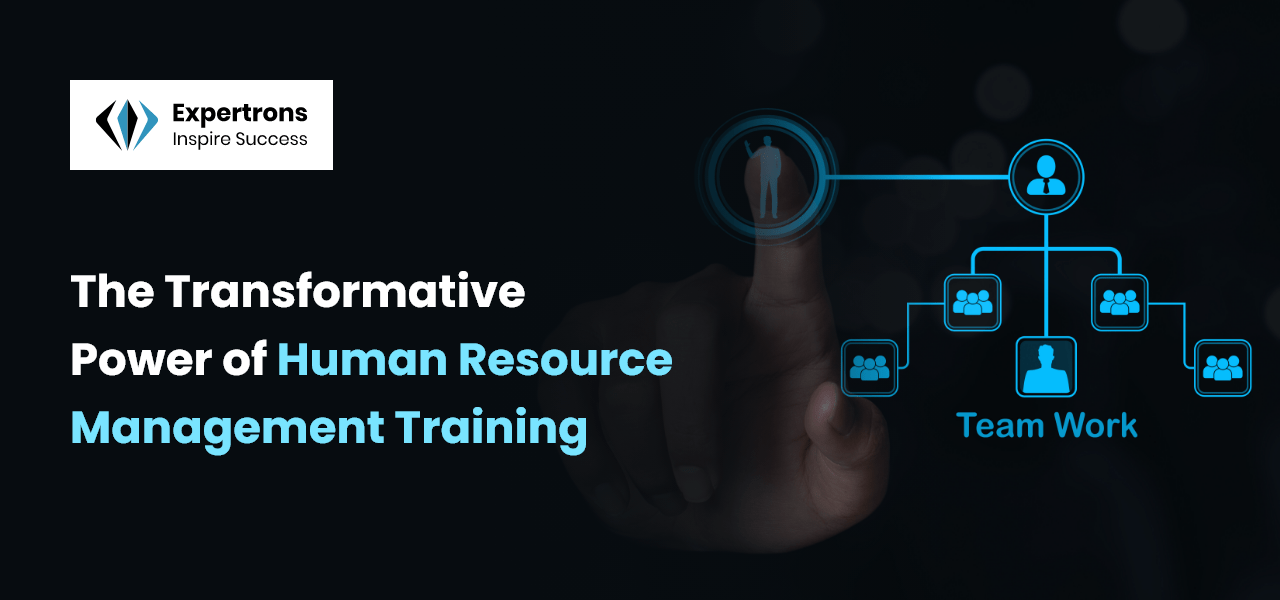Introduction
In an era of rapid change and fierce competition, the role of Human Resources (HR) has expanded significantly. Human resource management training is essential for equipping HR professionals with the skills necessary to navigate this evolving landscape.
This blog explores the transformative power of HRM training and its impact on organizational success.
The Significance of Human Resource Management Training
1. Building a Skilled Workforce
The primary goal of human resource management training is to build a skilled workforce. By investing in HR training, organizations ensure their HR teams are well-versed in critical competencies such as:
– Talent Acquisition: Understanding how to attract, assess, and onboard the right talent.
– Employee Development: Facilitating continuous learning and growth opportunities for employees.
– Performance Management: Implementing effective systems for evaluating and enhancing employee performance.
By developing these skills, HR professionals can significantly impact the overall effectiveness of the organization.
2. Strengthening Leadership and Management Capabilities
Effective HRM training goes beyond basic HR functions. It also prepares HR professionals to be strategic leaders within the organization. Key areas of focus include:
– Leadership Development: Training HR personnel to identify and cultivate future leaders.
– Change Management: Equipping HR teams with strategies to manage organizational change effectively.
– Conflict Resolution: Teaching HR professionals how to mediate disputes and foster a collaborative environment.
These competencies are vital for creating a resilient organization capable of navigating challenges.
3. Promoting Diversity and Inclusion
Organizations today prioritize diversity and inclusion (D&I) as part of their core values. Human resource management training equips HR professionals with the knowledge and tools to implement effective D&I initiatives, including:
– Developing inclusive recruitment strategies.
– Creating awareness programs to educate employees about diversity.
– Establishing policies that promote equity and inclusion within the workplace.
By fostering a diverse workforce, organizations can enhance creativity and innovation.
4. Ensuring Compliance and Ethical Standards
Compliance with labor laws and ethical standards is a critical aspect of HR functions. Training programs ensure HR professionals are knowledgeable about:
– Current employment laws and regulations.
– Best practices for policy formulation and implementation.
– Ethical decision-making frameworks.
By prioritizing compliance through effective training, organizations can minimize risks and maintain a positive reputation.
Key Elements of Effective Human Resource Management Training
To maximize the benefits of human resource management training, organizations should incorporate several key elements:
1. Needs Assessment
Before implementing any training program, it is essential to conduct a needs assessment. This process involves identifying skills gaps and determining the specific training requirements of the HR team.
2. Interactive and Engaging Training Formats
Effective training should be engaging and interactive. Utilizing methods such as workshops, role-playing, and group discussions can enhance learning and knowledge retention.
3. Continuous Professional Development
HRM training should be viewed as a continuous journey rather than a one-time event. Encouraging ongoing professional development through certifications, webinars, and advanced training courses ensures that HR professionals stay updated with industry trends and best practices.
4. Measuring Impact and Outcomes
Organizations should implement mechanisms to evaluate the effectiveness of training programs. By measuring outcomes such as employee engagement, retention rates, and HR operational efficiency, organizations can assess the impact of training initiatives.
The Organizational Impact of Human Resource Management Training
Investing in human resource management training can lead to profound organizational impacts, including:
1. Increased Employee Engagement and Morale
Well-trained HR teams can implement programs that foster a positive work environment, leading to increased employee engagement and morale. Engaged employees are more productive and committed to their organizations.
2. Improved Talent Acquisition and Retention
With effective HRM training, HR professionals can refine their recruitment processes, leading to better hiring decisions. This ultimately results in improved talent retention and reduced turnover rates.
3. Enhanced Organizational Agility
In a rapidly changing business environment, organizations must be agile. A trained HR team can better manage change initiatives, ensuring that the workforce remains adaptable and resilient.
4. Stronger Organizational Performance
When HR functions align with business strategies, overall organizational performance improves. Trained HR professionals are better equipped to implement initiatives that drive productivity and profitability.
Also read, The Role of Human Resource Management Training in Achieving Success
Conclusion
Human resource management training is not just an investment in HR professionals; it is an investment in the entire organization. By enhancing competencies, promoting a positive culture, ensuring compliance, and driving strategic alignment, HRM training serves as a catalyst for organizational success. In today’s fast-paced business environment, prioritizing HR training is essential for achieving sustainable growth and maintaining a competitive edge. Embrace the transformative power of HRM training and watch your organization thrive.
Frequently Asked Questions
Human resource management training involves educational programs designed to equip HR professionals with the necessary skills and knowledge to manage workforce effectively.
It is important because it enhances HR competencies, promotes organizational culture, supports business strategy, and ensures compliance with laws and regulations.
Key components include needs assessment, interactive training formats, continuous professional development, and measuring impact and outcomes.
HRM training can significantly improve employee engagement by fostering a positive workplace culture and developing effective management practices.
HRM training enhances talent acquisition by equipping HR professionals with the skills needed to attract and retain top talent through effective recruitment strategies.











